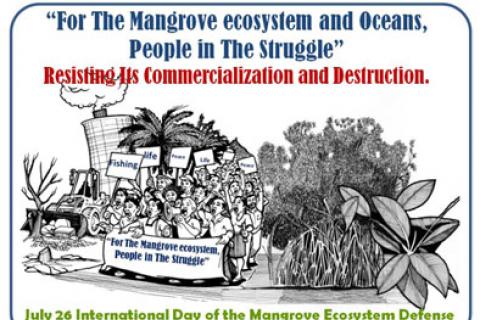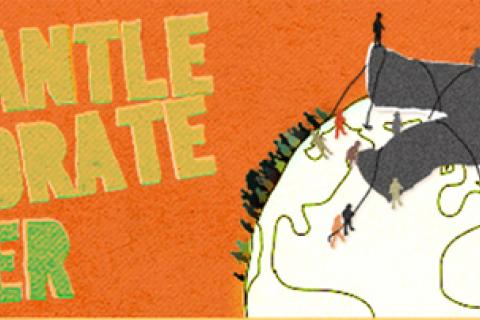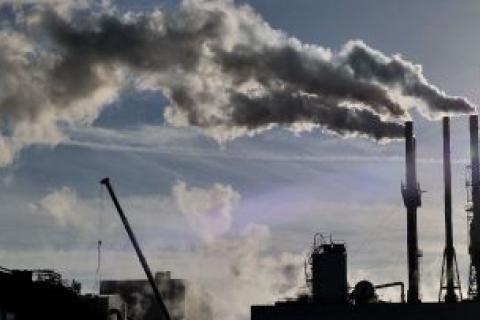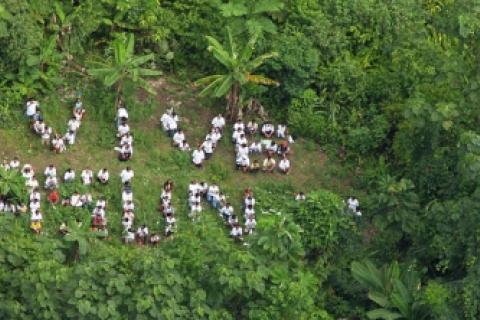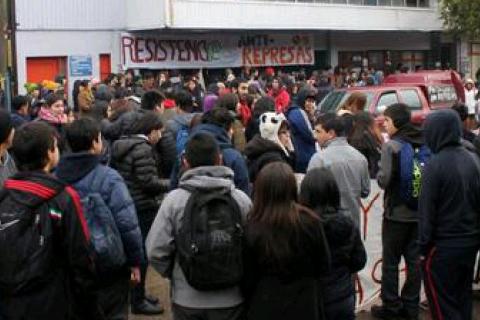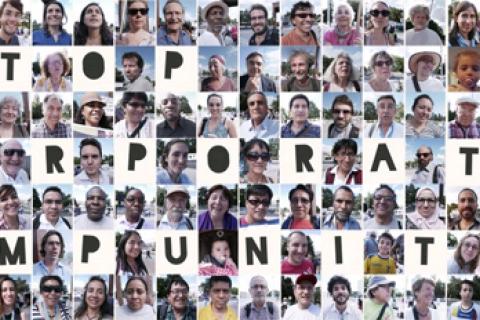Other information
Final statement from the Global Campaign Dismantle Corporate Power and Stop Impunity regarding the Week of Mobilization to Stop Corporate Crimes and Impunity.
The climate negotiations in Bonn, Germany (4-15 June) evidenced once again that climate change negotiations are being dominated by irresponsible states, polluters and corporations that only care about current operations and the furtherance of profits. The increase in fossil fuel exploitation and new carbon markets are destroying forests, soil, wetlands, rivers, mangroves and oceans, as well as the financialization and privatization of ecosystems and nature on which our lives depend.
Korinna Horta, in UNRID, The Politics of Resource Extraction.
Acción Ecológica (in Spanish, with English subtitles)
Neither free, nor prior, nor informed. An independently produced video exposes the so-called prior consultation of indigenous peoples conducted during the 11th Oil Round (an auction of oil blocks in the Amazon region) in Ecuador, revealing its irregularities and the silencing of the voices of indigenous communities. A clear example of how the distortion and abuse of the rights of indigenous peoples are used to justify the implementation of infrastructure mega-projects.
FSC Watch .
In July 2010, Suzano Pulp and Paper bought the biotechnology company FuturaGene, which for the past 8 years has been carrying out field trials of genetically engineered eucalyptus. In January 2014, FuturaGene applied to Brazil’s National Technical Biosafety Commission (CTNBio) for approval to plant GE trees on a commercial scale. Suzano is FSC-certified and plans to plant GE trees on a commercial scale.
Small farmers and indigenous organizations around the world are confronting a deep reduction of the world’s farmland and the processes of displacement from the fields. Even though a significant amount of experts keep claiming that the biggest part of the land is still in the hands of farmers and indigenous, this study shows that over 90% of the farmers around the world control less than a quarter of the world’s agricultural land.
Letter to the Inter-American Commission on Human Rightsurging it to call on the government of Ecuador to fully comply with the precautionary measures established for the protection of the life and personal integrity of members of Indigenous Peoples Living in Isolation in Ecuador, particularly the Tagaeri and Taromenane indigenous groups, who form part of the Waoroni people, as well as the territories they inhabit.
Mapuexpress (in Spanish)
After more than five years of hard-fought struggle against the HidroAysén energy mega-project, which would have involved the building of five huge dams on rivers in the Patagonia region, a Chilean government ministerial committee voted to reject this destructive project, saving Patagonia from the hydroelectricity imposed by transnationals and supported by governments.
Social movements celebrate historic vote at the United Nations Human Rights Council: UNHRC moves away from voluntary standards and towards a binding treaty to prevent transnational corporations’ human rights violations. After weeks of negotiation from Northern countries to avoid the creation of an intergovernmental working group to discuss binding human rights obligations for Transnational Corporations, the UNHRC voted on a resolution to initiate this process, with 20 votes in favour, 14 against and 13 abstentions.
The Permanent Peoples Tribunal (PTT) was held with social movement from all over the world and the Peoples' Treaty on Transnational Corporations (TNCs) was launched while member states of the UN Human Rights Council were debating in Geneva rules for TNCs. The PPT held on June 23, 2014, considered 12 cases in the mining, oil and water sectors, providing evidence that the operations of TNCs produce irreparable damage to the communities, by violating the human rights of people and generating impacts on nature and the environment.
